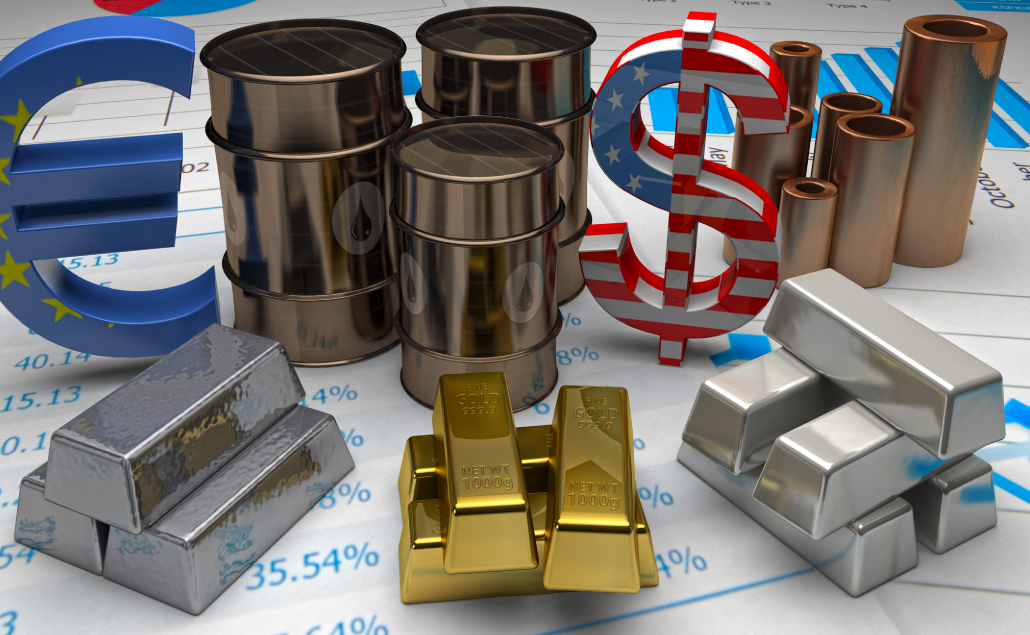A commodity is a basic good used in commerce that is interchangeable with other goods of the same type. Commodities are most often used as inputs in the production of other goods or services. They are raw materials such as metals, crude oil, grains, livestock, and airport landing fees that are traded on various commodities exchanges.
What are the Types of Commodities?
Types of commodities are divided into two main categories, hard and soft.
Hard commodities are physical assets that need to be extracted from the ground or harvested, such as oil and gas, minerals, timber, and agricultural products, which means that they involve the extraction, extraction costs, storage, and transportation. As the physical commodity is moved and stored, costs increase and so does the final price paid by consumers.
Soft commodities, on the other hand, refer to products derived from the agricultural sector and include coffee, cocoa, sugar, grains, pork, and beef. Soft commodities are typically paper contracts such as futures, options, and swaps. Soft commodities can involve physical commodities but they are more focused on the contract itself and the exchange of it. For example, buying and selling futures of a certain commodity means you are buying and selling a contract, not the physical commodity. Soft commodities involve contracts and speculation as to the future price of the commodity, and are often less costly than hard commodities in terms of transportation, storage, and extraction.
Explaining the difference between hard and soft commodities is an important step in understanding the economic landscape. Both hard and soft commodities are important for economic stability and should be understood in order to make more informed economic decisions.
Keep learning more with Eurotrader
If you want to learn more about how you can trade commodities CFDs with Eurotrader, click on the link below!
What Makes a Product a Commodity?
Commoditization can manifest itself in three ways.
First, a product can become a commodity due to price competition. The product may become so inexpensive that it can be considered to be a commodity, as it is no longer considered to be a distinct offering.
Second, a product can become a commodity due to technological advances that make it easier for manufacturers to produce very similar products.
Third, a product can become a commodity due to customer demand. If customers demand a product that is very similar to other offerings, then it can sometimes become a commodity.
How do Commodities work?
Commodities are goods or services that are routinely bought and sold. They are typically used as a type of asset, with their value determined by the supply and demand of the market. Below is a guide to understanding how these goods and services work.
The first step is to understand the market. The commodities market is a global network of buyers and sellers that involves the trade of goods and services. The commodities market is made up of futures contracts, which are agreements between two parties to buy or sell a certain amount of goods or services at a certain price on a certain date in the future. The prices of commodities are largely determined by the principles of supply and demand.
The second step is the determination of the price. The price of a commodity is determined by the balance of supply and demand in the market. When the demand for a commodity exceeds the supply, the price of the commodity will increase. On the other hand, if the supply of a commodity is greater than the demand, the price of the commodity will decrease. The price of a commodity can also be affected by economic and political factors.
The third phase is trading. Trading in commodities can be done through futures contracts, which are agreements between two parties to buy or sell a certain amount of goods or services at a certain price on a certain date in the future. Traders can also use options contracts, which give them the right, but not the obligation, to buy or sell a certain amount of goods or services at a certain price on a certain date in the future.
Speculation is the final step of the practice of trading in commodities with the intention of making a profit from price movements in the market. Speculation can be used to hedge against risks and can also be used to make profits. However, speculation can be risky, as the price of a commodity can be volatile and can change quickly.
At Eurotrader, we’re passionate about helping our members become successful traders. We provide an array of resources and support that make trading easier and more profitable. With our guidance, you can increase your return on investment and optimize your trading strategies. Join the Eurotrader community and start trading today to take your financial goals to the next level.
Related Articles
Disclaimer
Eurotrader doesn’t represent that the material provided here is accurate, current, or complete, and therefore shouldn’t be relied upon as such. The information provided here, whether from a third party or not, isn’t to be considered as a recommendation; or an offer to buy or sell; or the solicitation of an offer to buy or sell any security, financial product, or instrument; or to participate in any particular trading strategy. We advise any readers of this content to seek their advice.


